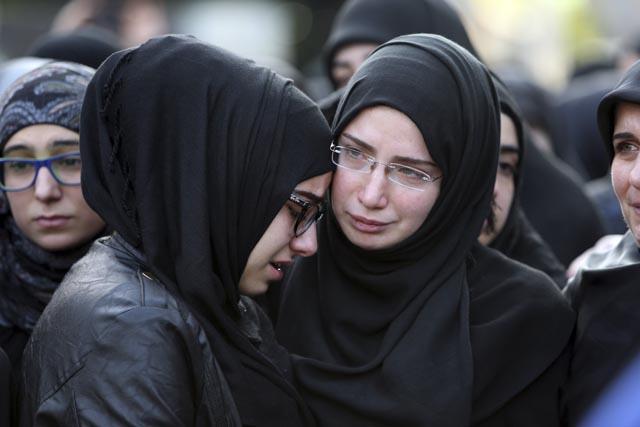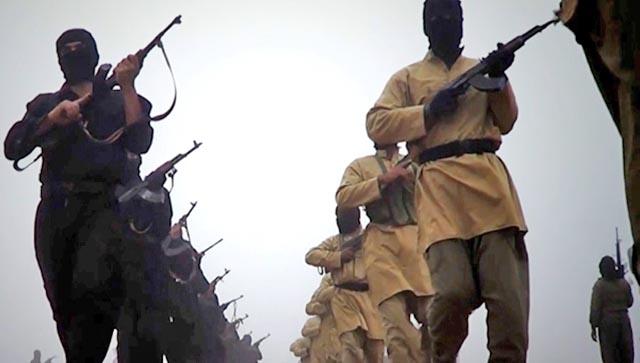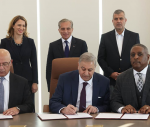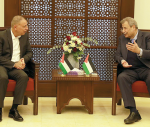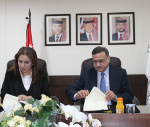FALLUJAH, Iraq — Iraq has lost Fallujah to Al Qaeda-linked fighters, a senior security official said on Saturday, putting militants who repeatedly battled American forces for the city back in control.
Parts of the cities of Ramadi and Fallujah, west of Baghdad, have been held by militants for days, harkening back to the years after the 2003 US-led invasion when both were insurgent strongholds.
Fighting erupted in the Ramadi area Monday, when security forces removed the main anti-government protest camp set up after demonstrations broke out in late 2012 against what Sunni Arabs say is the marginalisation and targeting of their community.
Anger at the Shiite-led government among the Sunni minority is seen as one of the main drivers of the worst violence to hit Iraq in five years.
“Fallujah is under the control of ISIL,” a senior security official in Anbar province told AFP, referring to Al Qaeda-linked group the Islamic State of Iraq and the Levant.
However, the city’s outskirts were in the hands of local police, the official added.
An AFP journalist in Fallujah also said that ISIL seemed to be in control, with no security forces or Sahwa anti-Al-Qaeda militiamen visible on the streets.
In Ramadi, a witness said Iraqi special forces had deployed on Street 60, where ISIL militants were positioned the day before.
More than 100 people were killed on Friday in Ramadi and Fallujah, in the country’s deadliest single day in years.
Fourteen died in and near Ramadi on Monday and Tuesday, while later tolls were not immediately clear.
Hundreds of gunmen, some bearing the black flags often flown by jihadists, gathered at outdoor weekly Muslim prayers in central Fallujah on Friday, a witness said.
One went to where the prayer leader had stood, and said: “We announce that Fallujah is an Islamic state and call you to stand by our side.”
Fallujah was the target of two major assaults after the 2003 invasion, in which American forces saw some of their heaviest fighting since the Vietnam war.
American troops fought for years, aided by Sunni tribesmen in the Sahwa militia forces from late 2006, to wrest control of Anbar from militants.
Militant power rising
US forces suffered almost one-third of their total Iraq fatalities in Anbar, according to independent website icasualties.org.
But two years after US forces withdrew from the country, the power of militants in the province is again rising.
Clashes erupted in the Ramadi area on Monday as security forces tore down the sprawling anti-government protest camp.
The violence then spread to Fallujah, and a subsequent withdrawal of security forces from areas of both cities cleared the way for ISIL to move in.
ISIL is the latest incarnation of an Al Qaeda affiliate that lost ground from 2006, as Sunni tribesmen and former insurgents allied with US troops against jihadists in a process that began in Anbar and came to be known as the “Awakening”.
But the extremist group has made a striking comeback following the US withdrawal and the outbreak of Syria’s civil war in 2011.
Charles Lister, a visiting fellow at the Brookings Doha Centre, said its “strength and territorial control and influence have been expanding in Anbar for some time”, although mainly in rural desert areas.
The Ramadi protest camp operation pushed Sunni tribes into conflict with the government, and ISIL “has ridden this wave of popular Sunni anger”, Lister said.
Prime Minister Nouri Maliki had long sought the closure of the protest camp, dubbing it a “headquarters for the leadership of Al Qaeda”.
But its removal has caused a sharp decline in the security situation.
And while the closure has removed a physical sign of Sunni Arab grievances, the perceived injustices that underpinned the protest have not been addressed.
Violence in Iraq last year reached a level not seen since 2008, when it was just emerging from a brutal period of sectarian killings.
Sunni anger helped fuel the surge in unrest, boosting recruitment for militant groups and decreasing cooperation with security forces, while the civil war in Syria also played a role, experts say.


